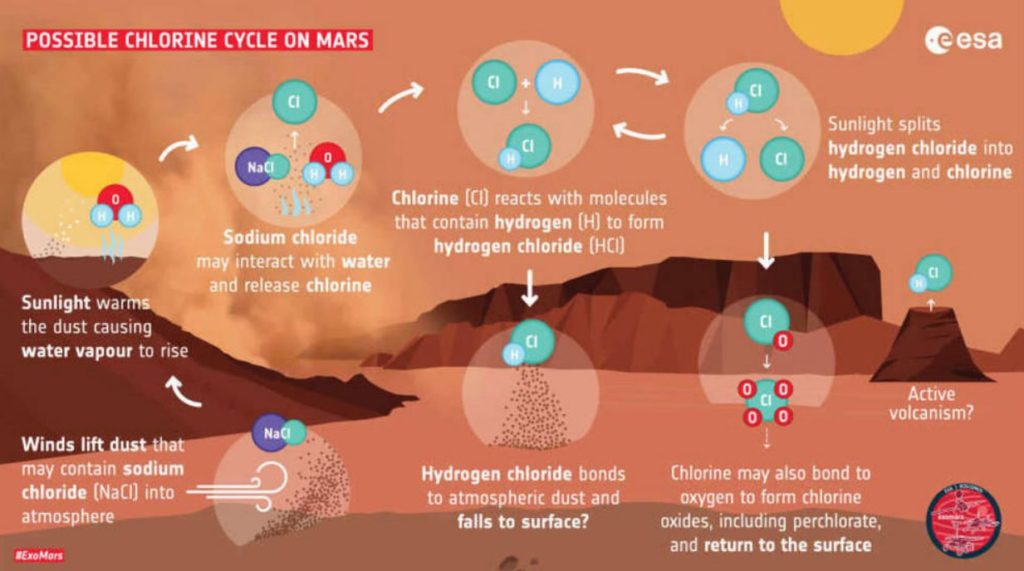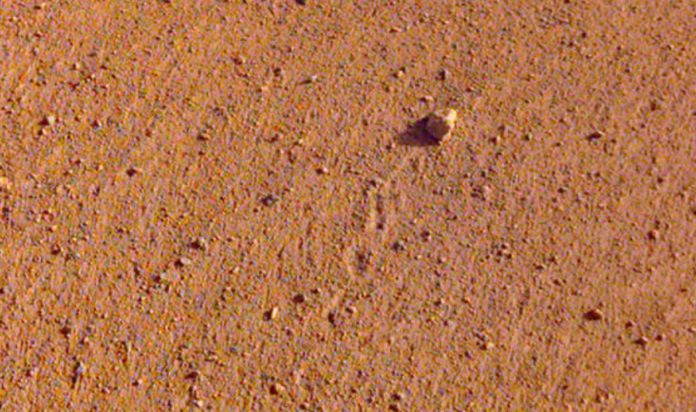A team of experts has just discovered an unknown process, which could be ‘born’ from a geological or atmospheric process never before seen on the surface of the red planet
Knowing the Solar System in depth is one of the great obsessions of scientists. In recent years, their research has not only focused on discovering whether there was (or even if there is) life on any other planet, but also on discovering in detail its composition to understand how planets were formed and, therefore, know more about the Earth itself. Now a new discovery has experts baffled: something never seen before on Mars.
- Does This Mean We Stopped Being Animal and Started Being Human Due to ‘Copy Paste’ Errors?
- The One Lifestyle Choice That Could Reduce Your Heart Disease Risk By More Than 22%
- Aging: This Is What Happens Inside Your Body Right After Exercise
- Immune-Boosting Drink that Mimics Fasting to Reduce Fat – Scientists ‘Were Surprised’ By New Findings
- Gun Violence in America: What They Don’t Talk About at the Debate
Thanks to the ExoMars Trace Gas Orbiter ( TGO or ExoMars Orbiter), experts have been able to detect an unknown chemical reaction on the red planet, where they have found hydrogen chloride (HCl). What does this discovery mean? Well, neither more nor less than the discovery of a molecule that was not known on Mars and that suggests that there is an event, meteorological or geological, that generates its presence, something that today is unknown and of which there is no record.
Hydrogen chloride is not only not a sign of life, but we could even say that it is the opposite, since the processes by which it is generated on the earth’s surface are related to the formation of acid, while in the atmosphere it is related to ozone destruction. But for what reason has it appeared on the surface of Mars? And, even more important: why has it only been detected in a very specific period of time?
Experts are puzzled, although they are convinced that it can only be due to two very specific situations: by the volcanic activity that takes place under the Martian crust or by a series of complex chemical interactions in the atmosphere of the red planet. Be that as it may, the appearance of HCl on Mars for either of the two reasons is equally important, since it would be the first time that scientists have discovered either of the two processes.
“If it is a chemical cycle that binds minerals in surface dust to gases in the atmosphere, this will be the first known direct link between the surface and the atmosphere, beyond ice formation. On the other hand, if the source of HCl is volcanoes or other magmatic degassing, then this is one of the first active geological process tests found,” explains Kevin Olsen, co-author of the Oxford University study at ‘Gizmodo’.
“If it is a chemical cycle that links minerals in surface dust with gases in the atmosphere, this will be the first known direct link between the surface and the atmosphere, beyond the formation of ice. On the other hand, if the source of HCl is volcanoes or other magmatic degassing, so this is one of the first evidence of active geological processes that has been found,” explains Kevin Olsen, co-author of the study from the University of Oxford.

Or, put another way, this discovery, published in a study in ‘Science Advances’, suggests that the presence of hydrogen chloride on Mars takes place by an unknown atmospheric process or by the first evidence of volcanic activity on the red planet. There is a third way, much less supported, which could be due to a third process that we are not aware of to date, although we do know that it is related to water vapor and dust storms.
- Does This Mean We Stopped Being Animal and Started Being Human Due to ‘Copy Paste’ Errors?
- The One Lifestyle Choice That Could Reduce Your Heart Disease Risk By More Than 22%
- Aging: This Is What Happens Inside Your Body Right After Exercise
- Immune-Boosting Drink that Mimics Fasting to Reduce Fat – Scientists ‘Were Surprised’ By New Findings
- Gun Violence in America: What They Don’t Talk About at the Debate
The first time HCl was detected on Mars was in 2018, after an impressive dust storm that generated a kind of greenhouse effect on the planet’s surface, after dragging large amounts of water from the surface to the atmosphere; Already in 2019, they detected it again in the water vapor that came from the thaw of the south pole in the Martian summer. But the great mystery is why hydrogen chloride is so elusive and disappears so quickly.
“Our understanding of how HCl behaves doesn’t explain this. It doesn’t condense or freeze like carbon dioxide or water, so it shouldn’t break down as quickly. We expect there to be interactions with solid dust and ice particles but it is a mystery how we can remove HCl from the atmosphere as quickly as we see it,” says Olsen, who will continue to investigate the great mystery of hydrogen chloride.
